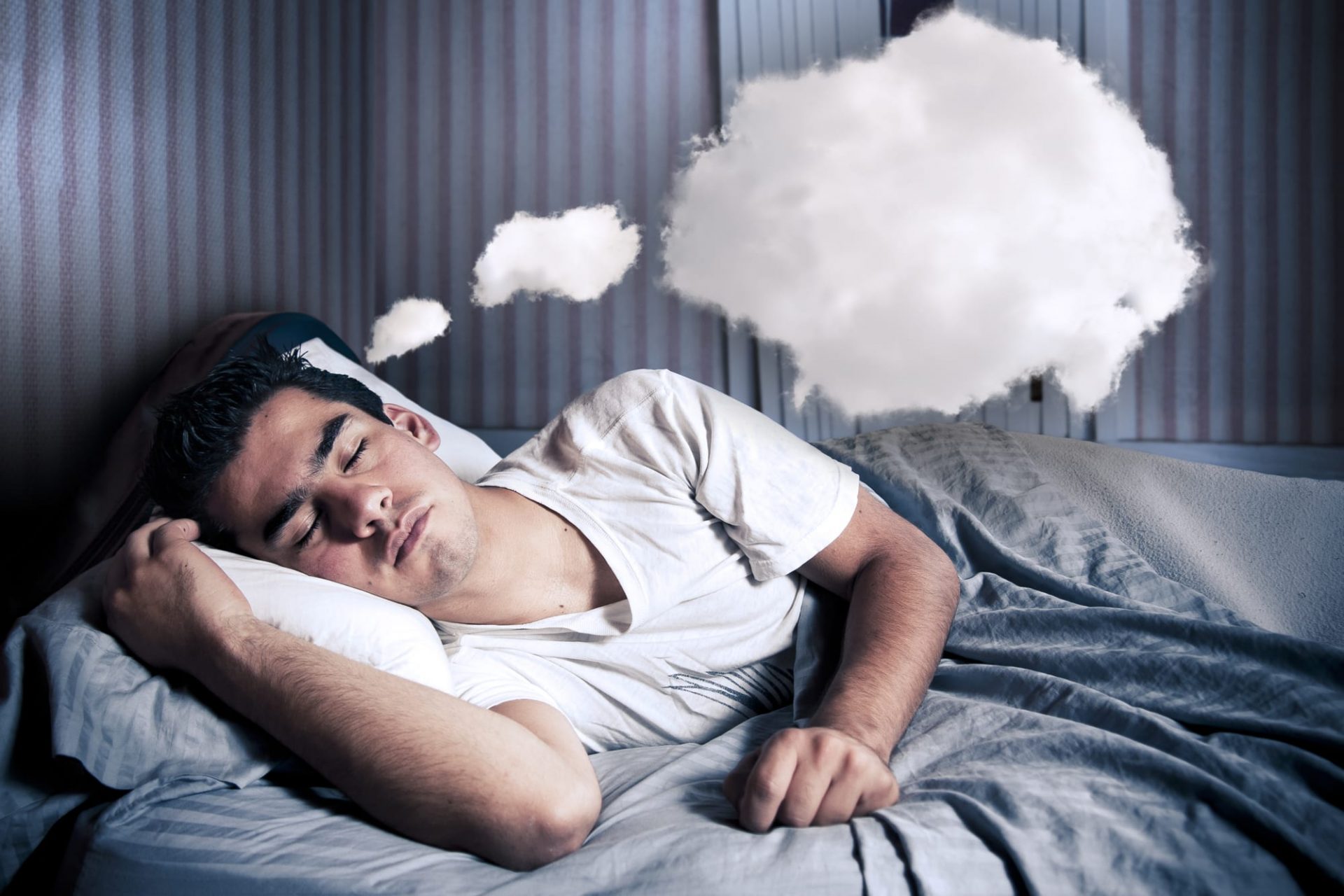
Dream : Why We Dream, Nightmares, and Lucid Dreams
Dreams are one of the most fascinating and mystifying aspects of sleep. Since Sigmund Freud helped draw attention to the potential importance of dreams in the late 19th century, considerable research has worked to unravel both the neuroscience and psychology of dreams.
Despite this advancing scientific knowledge, there is much that remains unknown about both sleep and dreams. Even the most fundamental question — why do we dream at all? — is still subject to significant debate.
There are still many mysteries surrounding the purpose of dreams and why the brain creates stories during sleep. It is difficult to study something that takes place while asleep and relies on people remembering what they experienced upon waking. However, new research has advanced the scientific understanding of dreaming
What are Dreams ?
Dreams are images, thoughts, or feelings that occur during sleep. Visual imagery is the most common1, but dreams can involve all of the senses. Some people dream in color while others dream in black and white, and people who are blind tend to have more dream components related to sound, taste, and smell.
Studies have revealed diverse types of dream content, but some typical characteristics of dreaming include:
- It has a first-person perspective.
- It is involuntary.
- The content may be illogical or even incoherent.
- The content includes other people who interact with the dreamer and one another.
- It provokes strong emotions.
- Elements of waking life are incorporated into content.
Although these features are not universal, they are found at least to some extent in most normal dreams.
What Are Nightmares?

Nightmares are a type of dream associated with frightening or other strong negative emotions. Researchers generally define nightmares as bad dreams that are so severe they wake the sleeper up. Among other factors, nightmares can be brought on by worries, stress, traumatic events, or mental health disorders.
What Is a Lucid Dream?
A lucid dream is a dream in which the dreamer knows they are dreaming and may be able to exert some control over what is happening in the dream. Researchers estimate approximately 50% of people have had a lucid dream at least once. A lucid dream may occur randomly, when the dreamer spontaneously realizes they are dreaming. People may also use special techniques to try to induce lucid dreaming.
Why Do We Dream?
More research is needed to know exactly why people dream, but studies have uncovered some possible theories:
- Learning and Emotional Regulation: Dreams are heavily influenced by real-life memories, and some scientists believe they may contribute to memory consolidation and emotional regulation. Recent research has found that people with damage in areas of the brain that control memory and imagination experience less detailed dreams, suggesting that dreams might be a continuation of thought processes that are similar to waking life.
- Creativity: REM sleep is associated with creativity, which may explain the often bizarre, fantastic nature of dream imagery. Anecdotally, many people claim that dreams have inspired creative works and helped with problem-solving.
- Wish Fulfillment: Sigmund Freud, the neurologist famed for founding psychoanalysis, believed dreams were a form of wish fulfillment, and studies have found that suppressed thoughts can bubble back up to the surface in dreams. However, many current-day researchers consider psychoanalytic dream interpretation to be a pseudoscience.
- Default Mode Network: Researchers are currently exploring how dreams might arise from a system known as the default mode network. Often associated with daydreaming, the default mode network incorporates multiple brain areas and kicks in when a person is not concentrating on anything in particular. Some experts believe that bizarre dreaming in REM sleep occurs when part of the default mode network becomes disconnected from areas that ground thoughts in reality.
- Synaptic Regulation: Along the same lines, other researchers propose that dreaming might be the byproduct of mental housekeeping, when the brain is busy sorting through memories to decide which to keep and which to prune away.
- Building memory: Dreaming has been associated with consolidation of memory, which suggests that dreaming may serve an important cognitive function of strengthening memory and informational recall.
- Processing emotion: The ability to engage with and rehearse feelings in different imagined contexts may be part of the brain’s method for managing emotions.
- Mental housekeeping: Periods of dreaming could be the brain’s way of “straightening up,” clearing away partial, erroneous, or unnecessary information.
- Instant replay: Dream content may be a form of distorted instant replay in which recent events are reviewed and analyzed.
- Incidental brain activity: This view holds that dreaming is just a by-product of sleep that has no essential purpose or meaning.
Do Dreams Affect Sleep?

In most cases, dreams don’t affect sleep. Dreaming is part of healthy sleep and is generally considered to be completely normal and without any negative effects on sleep.
Nightmares are the exception. Because nightmares involve awakenings, they can become problematic if they occur frequently. Distressing dreams may cause a person to avoid sleep, leading to insufficient sleep. When they do sleep, the prior sleep deprivation can induce a REM sleep rebound that actually worsens nightmares. This negative cycle can cause some people with frequent nightmares to experience insomnia as a chronic sleep problem.
For this reason, people who have nightmares more than once a week, have fragmented sleep, or have daytime sleepiness or changes to their thinking or mood should talk with a doctor . A doctor can review these symptoms to identify the potential causes and treatments of their sleeping problem.
Source : www.sleepfoundation.org

Thanks
Have a sweet dreams ✨
I hope the end of nightmares of dictatorship.
I’m looking forward to becoming the dream truth.
အိပ်မက်တယ် အိပ်မက်မက်တယ်….🎧
Thanks for your publiction. Another issue is that just being a photographer consists of not only difficulty in recording award-winning photographs but in addition hardships in getting the best photographic camera suited to your requirements and most especially struggles in maintaining the caliber of your camera. This is very real and evident for those photography enthusiasts that are straight into capturing a nature’s engaging scenes – the mountains, the forests, the wild or seas. Going to these daring places undoubtedly requires a camera that can live up to the wild’s harsh landscapes.
Thanks for the points shared on your blog. Yet another thing I would like to state is that weight reduction is not supposed to be about going on a dietary fads and trying to reduce as much weight that you can in a couple of weeks. The most effective way to shed weight is by taking it slowly and gradually and following some basic tips which can make it easier to make the most through your attempt to shed weight. You may know and be following some of these tips, nevertheless reinforcing know-how never does any damage.
My partner and I absolutely love your blog and find nearly all of your post’s to be what precisely I’m looking for. Does one offer guest writers to write content in your case? I wouldn’t mind writing a post or elaborating on most of the subjects you write concerning here. Again, awesome web site!
Your articles are extremely helpful to me. Please provide more information!
Hi, i think that i saw you visited my website thus i came to 搑eturn the favor?I’m trying to find things to improve my site!I suppose its ok to use a few of your ideas!!
Hm,.. amazing post ,.. just keep the good work on!
Top site ,.. i will save for later !
Thank you
My dreams will alive till the end…
🥱🥱🥱
For our heroes ⭐
Click
Good night by little octopus
Nice
Please give me a sweet dream in tonight.🥱💙🌧️
informative!
Thank for sharing.
🥱🥱🥱
Ad Good evening 🌷☺️
Ads good.
😊😊😊.
Good morning 💗🌞💝🌞
ကြော်ငြာအဆင်ပြေ.
Done ✅😸 done 👏✅
Done ✅ dones 💕 click
မဂ်လာပါရှင့်.
Dones 💕 done ✅
ညချမ်းလေးပါ
😊😊😊.
Goodnight 😘
ဖိုက်တင်းပါ.
Good 💯💯💯💯👍👍
Thank you!
ကလစ်
Good night ပါအမျိုးများ
Done ✅✅😃
Click click click 💞
nice article
nice article
nice article
Goodnight all
ကလစ်ကလစ်
Done 😸✅
Dones 💕
😊😊😊
😑😑😑
အိမ်မက်နဲ့ လက်ေ တွ့ တကယ်ဖြစ်နိုင်လား..
အိမ်မက်ထဲ မအလ ကို သေနတ်နဲ့ခနခနပစ်သတ်တာပဲမက်နေလို့
thanks!
ဒီတညတော့
အိပ်မက်တွေမရှည်ခြင်ဘူးကွယ်.
ကြေငြာတက်တယ်
😊😊😊.
ကလစ်ကလစ်
Dones 💟💕💕💞
D
ဒီနေ့အဆင်ပြေတယ်ကြေငြာတွေတက်တယ်.
Dones 💟💕💕💕💕💞💞
Good night
Good night all clickers.🌧️
Thanks for sharing. I’m can dream in many nights. About of my dream, Especially funny dream😂, And sometimes I dream sweet dreams and nightmare. My dreams are many different types.😂
Thank you.
*Our first song*😁
Fighting 🤜✊🤛
Lucid dream sounds interesting
ပုရွက်ဆိတ်ပြေးဆေးဆောင်ထား😜
Suppressed thoughts can bubble back up 🙁
We must win cup 2022💪
👍👍
Thank you for knowledge.
ပရွက်ဆိပ်ကိုက်ရင်ဘိုလုပ်မလဲ😂😂😂
Thanks for the knowledge. Hope to have sweet dream every night.
Good to known that. Thanks for the knowledge.
🌸
Great article. This website is useful for sharing knowledge.
Thanks for ur sharing guys
Thank’
Thanks for this article. I got new knowledge from this.
Dream
💪💪💪🤝
1
Hmm.. Interesting
🤝💪💪💪
🤝💪💪💪
🤝💪💪💪
I can’t dream because I can’t sleep most of nights.
I wanna recommend a song for all clickers. It is Joseph Vincent’s “Our First Love”. Have sugar dreams.
အိမ်မက်တွေတကယ်ဖြစ်ဖို့ကြိုးစားကလစ်ပါသည်
Thank you for sharing.
Dreams come true
အိမ်မက်တွေအတွက်ကြိုးစားနေပါတယ်
💕💗💟💖💯🤍🤍🤍🤍🤍🤍🤍🤍🤍💖💖💖💖💖💖💖💖💖💖💖💖💖💖💖💟💟💟💟💟💟💟💟💟💟💟💟💟
done
We must win 2022💪
good night
Good night everyone. Have sweet dreams like honey.🌃🍯
အိမ်မက်တွေတကယ်ဖြစ်ဖို့ကလစ်နေပါတယ်💓💕💗💯🤍💪💖❤️🧑💻💓💕💗💯🤍💪💖❤️🧑💻
Same.
Thanks for knowledge sharing. I can sleep well every night. And I dream many night.
Thank you for knowledge.
Good💞💟💪💖❤️💗💕💓🤍
I can’t agree with one fact.Even though all of my dreams are not nightmares,they affect my dreams.Sometimes when I dreamed of some dreams,they are really annoyed(they are not nightmares)
Most of the dreams I dreamt of are exams-different types of exams 🥲
I always dream every night.
I do not want to dream because it disturbs my sleep. I like good dreams. But,when I dream of the impossible, I lose sleep.
Nightmares only happen when I’m sick. I want everyone to get a
good night’s sleep. Thank you for knowledge.
Now I can not dream because I am too busy and sleep 4 hours
Thanks for new article